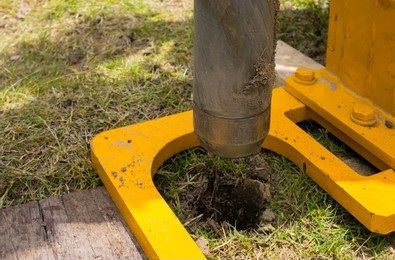
Soil is the basic environmental element of the ecosystem and the material basis for human survival and development, so it is important to strengthen the prevention and control of soil pollution and analysis of physical and chemical properties. In addition, soil as the basis of agricultural development, agriculture also has a pivotal role, what kind of soil is suitable for what kind of crops, to absorb the crop growth process and what elements are still missing, etc. can be detected through soil analysis to obtain results.
The plasticity index is the difference between the liquid limit and the plastic limit, which reflects the degree of interaction between soil particles and water. In general, the greater the plasticity index, the more plastic the soil is, the greater the compressibility and the lower the permeability. The plasticity index affects crop root growth, nutrient uptake, conversion, and effective utilization, and ultimately limits crop yield. This is why Lifeasible offers our customers a soil plasticity index test as an important addition to our soil testing services.
| Types of soil that can be tested | Antiseptic soil, epoxy soil, powder soil, low-carbon soil, soil for smelting, soil alloy, etc. |
| Sandy soil, clayey soil, loamy soil, red soil, brown soil, brown soil, black soil, chestnut calcium soil, desert soil, tidal soil, sand ginger black soil, irrigated silt soil, paddy soil, wet soil, meadow, swampy soil, saline soil, rocky soil, alpine soil, etc. | |
| Testing methods | Lifeasible uses a digital display liquid-plastic limit tester to measure the liquid limit and plastic limit of the soil and calculates the difference between the liquid limit and plastic limit to obtain the plasticity index. |
| Lifeasible uses the combined liquid-plastic limit measurement method to measure the sinking depth of the cone in several soil samples with different moisture contents, draws the relationship curve between the sinking depth of the cone and the moisture content, and then finds the liquid limit and plastic limit values of the soil samples from the curve. |
In addition to testing the plasticity index of soil samples, Lifeasible can also use various methods to test the LL (liquid limit), SL (shrinkage limit), flow index, toughness index, fluidity index/hydroplasticity ratio, and other indicators of soil samples.
If you have a soil sample that needs to be tested and analyzed, you can contact our staff to customize your project plan.
Lifeasible has established a one-stop service platform for plants. In addition to obtaining customized solutions for plant genetic engineering, customers can also conduct follow-up analysis and research on plants through our analysis platform. The analytical services we provide include but are not limited to the following:
Get Latest Lifeasible News and Updates Directly to Your Inbox
Adaptive Evolutionary Mechanism of Plants
February 28, 2025
Unraveling Cotton Development: Insights from Multi-Omics Studies
February 27, 2025